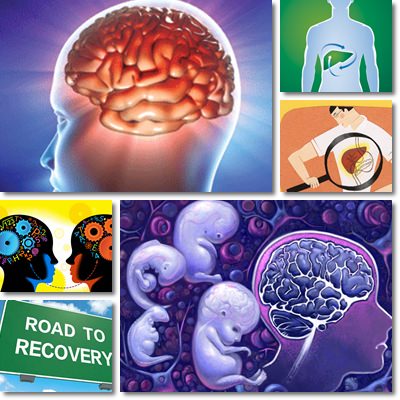A newly-discovered nutrient, choline, is a vitamin-like compound similar to B group vitamins. Choline is an essential nutrient which means our body needs it in order to keep us healthy.
While we produce small amounts of choline ourselves, in the liver, they are not sufficient to generate any visible health effect, hence the need to consume it from various dietary sources.
When it was first discovered, choline was called vitamin J. But choline is not really a vitamin, but a vitamin-like nutrient similar to B group vitamins and water soluble.
In addition to having a surprising impact on brain development and improving memory, choline appears to have a beneficial action on liver function, contributes to reducing cardiovascular disease risks and appears to improve cognitive functions following stroke.
Research points to its vital importance in preventing neural tube defects in newborns as well as delaying cognitive decline in the elderly.
Choline is not just an essential nutrient, but a sort of multifunctional vitamin which benefits the nervous and cardiovascular systems in particular, but also plays a huge role in liver health.
Read below and find out 7 of its most noteworthy health effects:

What is choline good for?
1) Prevents neural tube defects in newborns.
According to research, choline may prove just as important as folate (folic acid or vitamin B9) in helping prevent neural tube defects in newborns because of its cardiovascular implications.
Choline deficiency causes high homocysteine levels, a condition known as hyperhomocysteinemia. Expecting mothers suffering from choline deficiency risk having elevated homocysteine levels which might put them at risk for miscarriage, premature birth, low birth weight and newborns with neural tube defects.
2) Improves memory and Alzheimer’s and Parkinson’s evolution in the elderly
Choline is a precursor for acetylcholine, a neurotransmitter that modifies the way in which our brain processes information (a function involved in memory stimulation) and helps nerves activate muscles in our body.
Researchers believe that low choline intakes may contribute to the onset of progressive cognitive decline and degenerative neurological disorders.
Having a sufficient intake of the nutrient is believed to support brain function and prevent or delay nervous system degeneration in the form of memory loss or motor problems occurring particularly in neurogedenerative disorders such as Alzheimer´s and Parkinson´s disease.
It has been speculated that ensuring an adequate intake can potentially improve disease outcomes.

3) Exerts a protective action on nerve cells
Choline is also a precursor for phosphatidylcholines, a group of lipids (fats) that help make up cell membranes and its presence at the level of the nervous system is thought to help protect nerve cells from oxidative damage that leads to tissue damage, cell death and, eventually, degenerative neurological conditions.
In simpler words, choline helps keep nerve cells viable (alive and working). For this reason, it is viewed as a promising potential treatment for a variety of neurological conditions ranging from memory loss to dementia,
Parkinson´s disease and other neurological conditions manifesting through seizures.
4) May improve cognitive functions and encourage recovery in stroke survivors
Choline is an important presence at the level of the nervous system. Recent research suggests that taking citicholine or CDP-choline (cytidine and choline compound) supplements may help repair damaged cell membranes in stroke sufferers, potentially contributing to better recovery following stroke and a lower degree of disability.
However, considering the complexity of stroke in general, choline supplementation may be more efficient when combined with other therapies (Cytidine 5′-Diphosphocholine (CDP-Choline) in Stroke and Other CNS Disorders).
5) Promotes liver health
Our liver is made to process fats and cholesterol and send them into the bloodstream for various purposes. For this process to take place, these two lipids are turned into very low density lipoproteins and then sent out.
Choline not only mediates the process of turning fats and cholesterol into very low density lipoproteins, but also helps the liver excrete them into the bloodstream.
A choline deficiency causes these lipids to accumulate and ultimately lead to fatty liver and liver damage. If the deficiency persists and is pronounced, and the liver problems are left untreated, cirrhosis and even liver cancer can develop over time.
6) Boasts cardiovascular benefits
Evidence suggests that a low intake of choline causes high levels of homocysteine, an amino acid responsible for cardiovascular disease.
Atherosclerosis (plaque on the inside of the arteries blocking blood flow), blood clots, stroke and heart attack have all been linked to high homocysteine levels. Ensuring we have a sufficient choline intake is believed to be beneficial for cardiovascular health.
7) Anti-inflammatory properties
When choline protects nerve cells from oxidative damage, it also prevents the natural inflammatory response that would have taken place as a result of this damage.
When it prevents high homocysteine levels, it also prevents the damage that excess of homocysteine would have done to the lining of our blood vessels. In other words, its very presence in our diet and our body supports the function of certain organs and systems, preventing dysfunctions that could result in inflammatory responses.
Choline deficiency
The signs and symptoms of a choline deficiency may not always be as obvious as other vitamin and mineral deficiencies. But this does not make it okay to not meet our minimum daily demands.
Elevated levels of certain liver enzymes, high homocysteine levels, fatty liver are things we do not notice and can thus progress without our knowledge, causing serious harm over time.
But having a varied, natural diet which includes a lot of foods rich in choline is enough to prevent a deficiency and its infelicitous side effects.
Recommended intakes may vary greatly from person to person, depending on individual needs for the nutrient Factors such as disease or malabsorption problems may increase requirements.
See the 10 best choline food sources. However, the general guidelines recommend the following intakes:
14-19 years of age: 550 mg daily for men and 400 mg daily for women
Adults over 19: 550 mg daily for men and 425 mg daily for women
Pregnant women: 450 mg daily
Nursing mothers: 550 mg daily
Supplementation is not imperative when it comes to ensuring we have all the choline we need on a daily basis. Eating foods rich in the nutrient such as eggs, liver, chicken, wheat germ, cruciferous vegetables such as cauliflower, peanuts, almonds, cod etc. can supply all or most of the choline we need.
Like mentioned above, individual needs may vary greatly. Nevertheless, meeting our daily intake is essential if we want to be and feel healthy.
